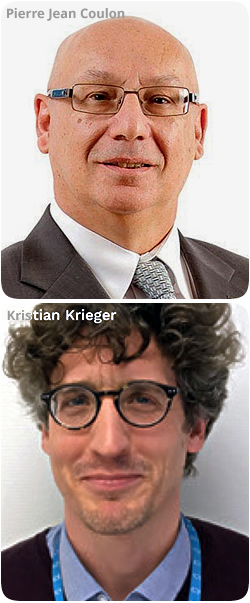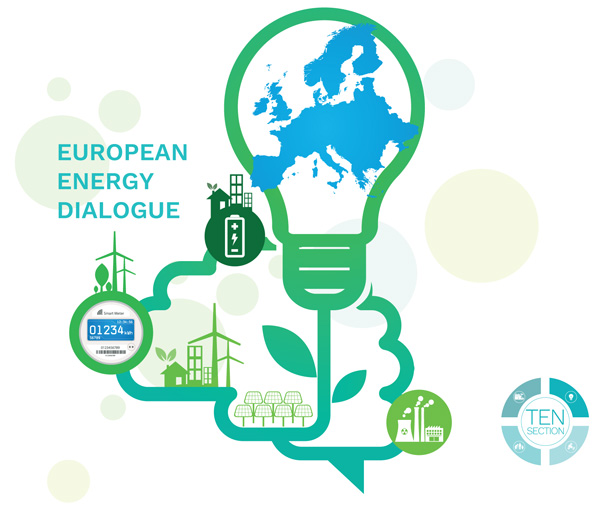 Two publications have been making the headlines ahead of the global climate negotiations of COP24 in Poland. The International Panel on Climate Change (IPCC) released its report on the impact of global warming of 1.5 degree Celsius in early October, highlighting the expected severe impact on natural life and human societies in case of a warming of two degrees Celsius. This report was followed in late-November by the European Commission's long-term strategy for greenhouse gas reduction, in which the Commission spells out its ambition to make Europe carbon neutral by 2050.
Two publications have been making the headlines ahead of the global climate negotiations of COP24 in Poland. The International Panel on Climate Change (IPCC) released its report on the impact of global warming of 1.5 degree Celsius in early October, highlighting the expected severe impact on natural life and human societies in case of a warming of two degrees Celsius. This report was followed in late-November by the European Commission's long-term strategy for greenhouse gas reduction, in which the Commission spells out its ambition to make Europe carbon neutral by 2050.
Both reports offer important insights into the urgency and complexity of the transition to low-carbon economies. While reflecting on social aspects of different transition pathways to some extent, the reports and ongoing public debate would – in our view – benefit from a more wide-ranging discussion of the implications of the urgency and of different pathways on energy justice, including in particular the challenge of energy poverty. Not discussing these aspects carries the risk of leaving parts of Europe's population behind, creating a "prosperous, modern, competitive and climate neutral economy" but not for all.
It is in this context that the work undertaken by the EU Energy Poverty Observatory (EPOV) seems particularly important. The EPOV was launched by the European Commission in January 2018 with a mandate to generate and gather knowledge about energy poverty and ways to effectively fight this major problem. Energy poverty affects, after all, more than one in ten European households. The EPOV has already made significant contributions to a shared and extended understanding of energy poverty by analysing indicators for measuring energy poverty and ensuring the recognition of additional groups to be at risk of energy poverty.
The European Economic and Social Committee (EESC) played an instrumental role in the growing interest and institutional response to energy poverty at the European level. As early as 2001, one of the consultative bodies of the Committee issued an opinion on climate change and emissions trading specifically highlighting the risk of fuel poverty, thereby introducing this issue to the European policy discussions. More recently, in 2013, the EESC advocated for "coordinated European measures to prevent and combat energy poverty", proposing – among other ideas such as the establishment of a comprehensive EU Energy Solidarity Fund – the setting-up of the now existing EU Energy Poverty Observatory.
However, with this opinion, the EESC's work to battle energy poverty has not ended. Rather, the Committee – as the house of Europe's organized civil society – endeavours to (help) mobilize the knowledge and resources of civil society for this struggle.
Concretely, the Committee has developed a positive vision of Europe's energy future in which citizens are empowered to participate economically and politically in the energy transition. Based on the rich, hands-on experience of EESC members, the Committee has argued that the rapid decline of costs for renewables and the potential of digitalisation and – in the future – artificial intelligence offer an opportunity to develop a decentralised energy system, in which citizens, households, energy communities and cooperatives can assume a central role in supplying energy.

Case studies from across Europe examined by EESC members have demonstrated a strong interest by civil society in becoming actively involved in the energy transition. However, often local and regional governments must play a central role in ensuring that this involvement is inclusive and energy poor households are enabled to fully participate – via public financing, simplified administrative procedures, awareness campaigns, and training. In order to make the energy transition work for the more vulnerable European households in communities, cities, and regions, the Committee seeks to closely cooperate with the Committee of the Regions, the European Commission's DG REGIO, and other organisations from civil society, such as Energy Cities and Rescoop.
In addition, the EESC aims at facilitating information exchange on best practices between civil society and EU institutions. Often unnoticed by civil society organisations across the Member States, EU institutions finance and undertake highly relevant projects and studies that can provide important lessons and practical tools for resolving the challenge of energy poverty across Europe. Beyond the EPOV with its substantial knowledge resources, agencies such as the European Agency for SMEs have funded projects in which, for instance, more inclusive financing mechanisms of a switch to renewables are developed (e.g. collective purchasing groups, consumer stock ownership plans), effective awareness and advisory services designed (e.g. energy advisors and ambassadors with first-hand knowledge of energy poverty), and existing community infrastructures assume new roles in reducing energy bills (e.g. energy prosumer communities promoting energy saving).
By assisting individual project work and cooperating with these bodies, the EESC and its members learn about what has worked and what not and share this knowledge through its networks into the 27 Member States.
Through such and other efforts, the Committee pursues its vision of an inclusive and sustainable energy future for Europe. The EESC emphasises that even in the light of the increasing urgency of decarbonising Europe's economies and energy systems, no-one should be left behind in this process. It welcomes the EU's efforts – via the EPOV, the coal regions in transition platform, its support for prosumers and energy communities in the "Clean Energy for All Europeans" proposals – to address some of the social challenges of the energy transition. The EESC uses its very own resources, the passion, ideas, expertise, networks and tools of civil society, to raise awareness and provide solutions to the economic and social challenges associated with the transition